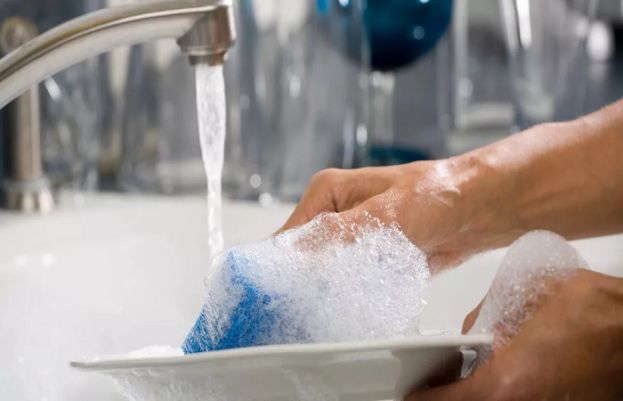
Dishcloths, usually uncared for and left damp on the sink, are seldom washed as often as different home goods. With temperatures rising, kitchens grow to be hotspots for micro organism proliferation, Dr Gareth Nye warns. Dr Gareth Nye, programme lead for medical science on the College of Chester, has suggested towards utilizing dishcloths except they’re totally washed after every use and changed each few months to minimise bacterial contamination.
In collaboration with Magnet Commerce, Dr Nye explored the extent of bacterial presence on dishcloths and shared greatest practices for his or her cleansing and storage. Dr Nye revealed startling figures: “90 per cent of UK dishcloths had been thought of closely contaminated with micro organism in contrast, with 20 per cent of bathroom flush handles. The bathroom festivals higher than different kitchen areas such because the kitchen faucet and worktop. Once more, in keeping with current research, round 70 per cent of UK dishcloths are contaminated with over one billion micro organism per 100sqcm space – or round half a billion on your common sized dish material.”
He additionally listed seven dangerous micro organism generally discovered on dishcloths, together with E coli, which might trigger a variety of signs:
E coli – diarrhoea, fever, stomach cramps, nausea and vomiting
Pseudomonas aeruginosa – can result in respiratory failure, shock, and demise
Salmonella – diarrhoea, fever, and abdomen cramps
Staphylococcus aureus – if allowed to enter the bloodstream could cause bloodstream infections, pneumonia, or bone and joint infections
Enterobacter – urinary tract infections, respiratory infections
Klebsiella – urinary tract infections, respiratory infections
Bacillus subtilis – vomiting and diarrhoea
The knowledgeable warned to Bristol Dwell: “All micro organism could cause very extreme infections in sufferers who’re very younger or previous, or have underlying well being circumstances which make them extra vulnerable to infections. Micro organism will develop at completely different speeds relying on how damp the material is, the way it’s left and what it comes into contact with throughout its use.
“Suggestions are to not use them, however for those who do, try to be washing totally after every use and rinse with an anti-bacterial detergent each two days to kill harbouring germs. You also needs to change your dishcloth each few months. Ideally it is best to change to anti-bacterial wipes to wash some surfaces, significantly after the preparation of uncooked meat or poultry that are recognized producers of dangerous micro organism.”
Tips about how you can retailer your dishcloth to minimise bacterial progress
Dr Nye has issued a stark warning about kitchen hygiene, saying: “A moist dishcloth left in a heat kitchen supplies a super setting for micro organism to multiply. That is significantly possible if meals traces are current, too. They need to be stored dry, away from potential sources of micro organism and laid as flat as attainable. Micro organism grew and multiplied in all varieties of cloths that had been crumpled, however ranges of micro organism had been lowered by 1,000 occasions if the dishcloths had been hung to dry for twenty-four hours at room temperature.”
How one can wash dishcloths to take away micro organism
Wash dishcloths on a scorching cycle of 90°C
Dr Nye mentioned: “Ideally, to make sure all micro organism is eliminated it is best to wash dishcloths in a washer on a suitably excessive temperature, reminiscent of a scorching cycle of 90C. You should definitely verify the fibre content material of your cloths earlier than washing, as artificial varieties gained’t face up to excessive temperatures – so for those who haven’t already, put money into pure supplies that may face up to a scorching wash.”
Be certain all meals and grime is eliminated
Dr Nye mentioned: “In the event you wash and disinfect cloths by hand, be sure that all of the meals and grime has been eliminated by washing in scorching soapy water earlier than you disinfect them. After washing, you possibly can disinfect by utilizing boiling water or a disinfectant, following the producer’s directions.”












